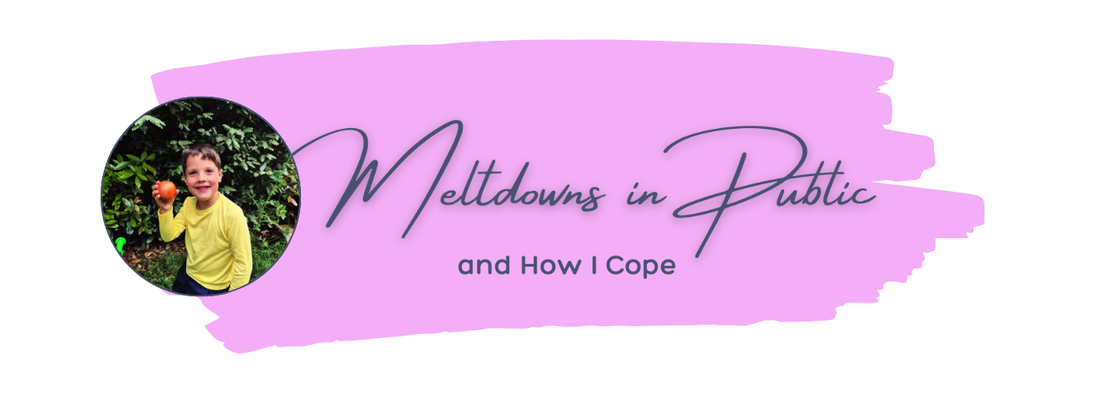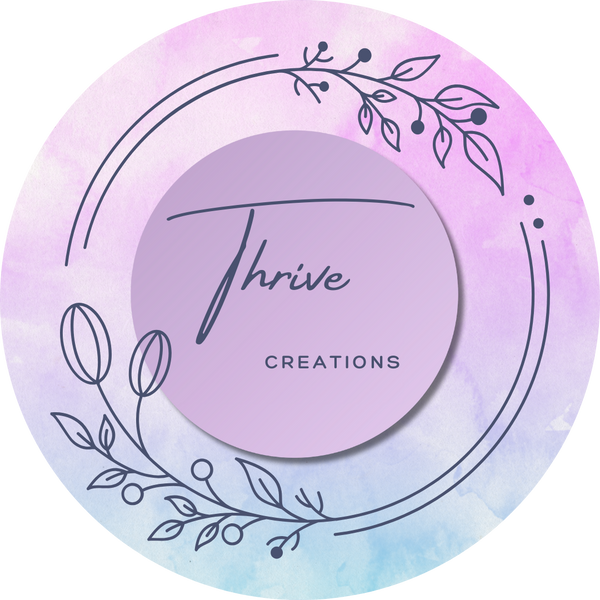
Meltdowns In Public - And How I Cope
There’s something uniquely stressful about your child having a meltdown in public. You’re trying to stay calm, but inside your heart is pounding. You feel eyes on you - whether they’re actually there or just imagined. You know your child is dysregulated and struggling… but let’s be honest, so are you.
As a SEN mum, I’ve learned that public meltdowns hit differently. There’s more at stake. More uncertainty. More judgement. And often, more layers to what's really going on beneath the surface.
I want to share something that happened a couple of months ago - something that reminded me just how much progress we’ve made, even when it doesn’t feel like it in the moment.
The Playdate Meltdown
We were at a park on a playdate with friends we hadn't seen in a while. Devan kept coming back for snacks, and after a while, I gently told him, “No more snacks now - go and play.”
I could already see his frustration starting to build, so I tried to redirect him with an apple. He took it reluctantly, clearly annoyed. Then, out of the corner of my eye, I saw him throw the apple into the bushes.
He came storming back and asked for another snack. I stayed calm, but firm: “I saw you throw your apple. Why did you do that?”
That was it - the tipping point. He started yelling that it was bruised, it was yucky, and why did I even give it to him. Every word came out sharper and louder. His frustration was turning into fury, and honestly, I could feel my own rising to match it.
But I didn’t want to meet fire with fire. I picked him up - he resisted a little, but let me - and carried him away from the crowd, over to a quieter spot at another table. I sat with him while he raged. He shouted at me. I tried to offer a hug, but he pushed me away. So I said, “That’s okay. I’ll sit here until you’re ready.”
It only took a few more minutes, but it felt like a lifetime. And then I saw it - the shift. His shoulders dropped, his voice softened. He said, “I’m sorry for shouting. I want you to hug me now.” We sat and cuddled for a while. Then he said he’d go play, and come back for another snack later - and he promised not to throw it away.
It was a small moment on the outside. But for us, it was huge.
What I’ve Learned About Public Meltdowns
Over time, I’ve learned to approach these moments differently - not perfectly, but with more intention and compassion. Here are some of the biggest lessons I’ve carried with me:
1. Regulation starts with me
If I let my frustration take over, there’s no way Devan can calm down. He’s looking to me to anchor him. That doesn’t mean I don’t feel things - but I try not to act from that place.
2. Remove, then repair
Getting out of the crowd made it easier for both of us to breathe. I used to be afraid that leaving the situation would draw more attention, but it actually gives us space to reset and reconnect.
3. Sometimes silence speaks louder than words
When he wasn’t ready to talk or be held, I didn’t push. I just stayed. And that made all the difference.
4. Meltdowns aren’t manipulation
Even when it looks irrational or dramatic, it’s not “bad behaviour” for the sake of it. It’s a child overwhelmed, trying to make sense of their world. And when I treat it that way, we both come out of it stronger.
I Still Get It Wrong Sometimes
I’m not writing this because I’ve cracked the code or always stay calm. I’m writing this because I know how lonely and chaotic these moments can feel - and how powerful it is when someone says, “I get it.”
There are still times I snap, or feel embarrassed, or want to disappear. But I’m learning that what matters most is not getting it perfect - it’s staying present. It’s showing up for my child again and again, even in the hard moments.
And when I do that - even after a public meltdown - I see it in his eyes. That look that says, “Thanks for sticking with me, even when I made it hard.”
You’re Not Alone
If public meltdowns feel like your parenting nightmare, know this: you’re not alone. It’s hard. It’s exhausting. It can be deeply isolating.
But there’s nothing wrong with your child. And there’s nothing wrong with you.
You’re learning. You’re growing. And with every meltdown, you’re building something stronger than calm behaviour - you’re building connection, trust, and resilience.
